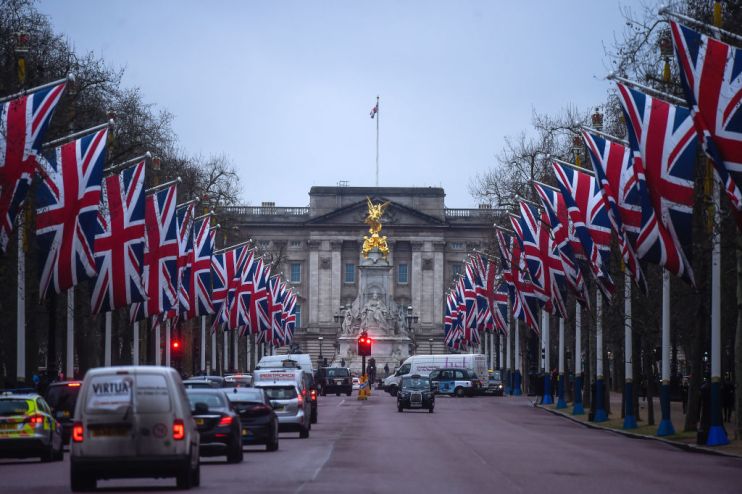This marks the start of a brave new post-Brexit future

Tonight at 11 o’clock, as the Brexit countdown clock ticks to zero, I will be toasting the moment with a bottle of Brexit Beer, produced by my friend and fellow Leave campaigner Jon Moynihan.
My toast won’t be to winning the Referendum or Getting Brexit Done. Rather, it will be a toast to the future, to the opportunities I hope will open up as Britain leaves the European Union.
Many articles and books have been written about the road to Brexit, the Referendum campaign, and the painfully tortuous process of negotiating the UK’s exit under Theresa May. But not enough has been written about the opportunities that lie ahead for us outside the EU. It is time we focus once again on the big picture.
For me, the Brexit prize was not about leaving the EU per se. Leaving the political institutions tonight is the start of the process, rather than the endpoint.
I believe that free trade is a key driver of prosperity, and felt that the EU had become too protectionist. It is certainly a large trading bloc in its own right, but it wasn’t pushing for new trade deals with other economies around the world with the urgency I felt was necessary in an increasingly globalised world. Its trade policy had also kept younger and less developed nations down, by keeping them primary production orientated.
When the UK joined the Common Market in 1975, it accounted for 35 per cent of world GDP. The EU now accounts for just 15 per cent of global wealth, so our future prosperity requires us to negotiate a trade deal not only with the EU, but also with the remaining 85 per cent of the world economy.
And these bespoke trade deals will be better suited to the UK economy, and more beneficial to UK consumers, than those previously negotiated by the EU. With services so important to our economy, our priorities are very different to those of other EU countries. The EU had an almost impossible task in negotiating agreements that suited the priorities of all 28 member states. It has size, but it lacks flexibility.
The Department for International Trade has laid solid foundations to both roll over existing deals which we currently have via the EU, and to negotiate new deals which the EU has yet to embark upon. I’m looking forward to seeing further progress from next week, when Liz Truss and her colleagues will begin formally negotiating a series of “oven-ready” trade deals to come into force at the end of the transition period.
On the regulatory front, the government is right to insist that the UK takes back control over our laws and regulations.
There might be areas where we choose to remain aligned with the EU — just as there is regulatory alignment in a whole host of industries internationally — but we must have the power to chart our own course, when we feel that the EU laws that have been incorporated into our legal system over the past 45 years are unsuited to our future priorities.
Without the UK’s liberalising influence over EU decision making, the regulations, tariffs and taxes that have been mooted in the past but not agreed are likely to resurface. A financial transactions tax, the harmonisation of corporate taxes, the neo-Luddite regulation of automation and AI — all are policies that have had traction in Brussels.
If this direction of travel is adopted by the EU, the UK will become a comparatively more attractive place to do business. But we need to avoid becoming enmeshed via dynamic alignment with the Single Market.
And what about Britain’s wider international interests? Will we play a lesser role internationally post-Brexit? Are we stepping away from the world stage? Absolutely not.
Boris Johnson has already become a significant world leader in his own right, and he might possibly become leader of the free world over the coming years. With Donald Trump not trusted, Justin Trudeau wounded by losing popular support, Angela Merkel exiting the world stage, and Emmanuel Macron facing political difficulties at home, it is Johnson — buoyed by his electoral triumph in December — who has emerged as a key world leader.
Far from losing our world standing as we exit the EU, the UK is emerging as a stronger, more confident country. As our economy pulls ahead of other EU members states (as all the leading forecasts suggest it will), the humiliation we faced with our Brexit difficulties earlier this year is fast turning into admiration for us having had the guts to leave a club which no longer suited our needs.
People had all sorts of reasons for voting Leave. But mine was for Britain to become a more liberal, internationalist, enterprising country. If we go down this route — as I believe we will — tremendous prosperity will follow.
And when this prosperity is invested in the regions and communities that voted Leave, a long overdue process of levelling up will begin. Boris Johnson was a One Nation Brexiteer. It is exciting to see that vision unfold.
Main image credit: Getty